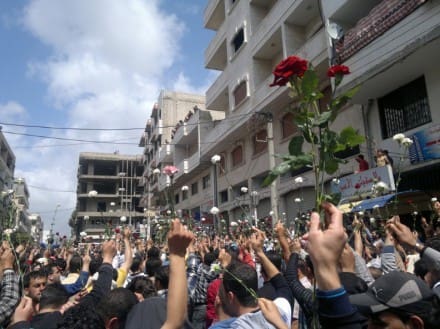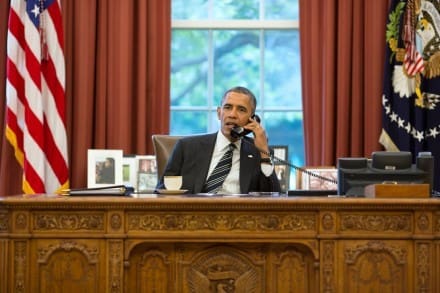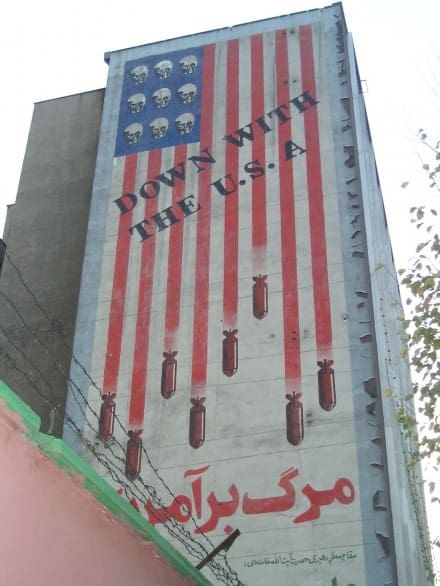This is the first of a series of weekly features from Grey Cell to keep you up to date on world events.
The last few months have witnessed several major shifts in the political landscape of the Middle East. In a deal brokered between the United States and Russia, Syrian president Bashar al-Assad agreed to destroy his chemical weapons stockpile and production equipment. In Iran, a change in tone from the newly elected president, Hassan Rouhani, opened the door to talks over that country’s nuclear program and the easing of four decades of hostility. While many foreign policy analysts see these events as game changers for the future of the region, they are divided over whom the winners and losers will be.
“They [diplomats] see a little window of opportunity, diplomatically speaking, in the otherwise bleak Syrian picture and they want to press home their advantage,” Al Jazeera’s Barnaby Phillips wrote from a meeting in London. Representatives from the U.K., Egypt, France, Germany, Italy, Jordan, Qatar, Saudi Arabia, Turkey, the United Arab Emirates and the United States met with Syrian rebel leaders hoping to schedule a peace summit with Assad in late November.
One element missing from the London conference was the Assad regime. In recent interviews, Assad said that he had no plans to hold peace talks and that he was still considering a run for re-election in 2014, despite popular uprisings against his administration being a key reason for the civil war in the first place.
“Personally, I don’t see any obstacles to being nominated to run in the next presidential elections,” Assad told state-run media, according to Reuters.
All that may change if Iran is engaged in the peace process. Iran is a high-profile backer of the Assad regime, providing weapons and soldiers to support the war effort, reports NPR. Damascus and Tehran are religiously and ideologically linked and have been since the 1979 Islamic revolution. But a change in Iran’s policy toward the West could change all of that. Negotiators are hoping that a breakthrough on Iran’s nuclear program could lead to a deal to end the Syrian civil war.
“Civil war in Syria, coupled with the emergence of a relatively moderate new government in Tehran, makes this an ideal time for the United States to reconsider its self-defeating diplomatic boycott of Iran,” writes Stephen Kinzer in a piece for Al Jazeera. “Admitting Iran into the Syrian peace process might improve the prospects for a cease-fire. It could also be the beginning of a thaw in the long-frozen relationship between Washington and Tehran.”
Not everyone is excited about the prospect of Iran and the United States cooperation. For Israel, an Iran unhindered by sanctions poses a deadly a military threat. Israeli Prime Minister Benjamin Netanyahu has spent two decades convincing the international community to prevent Iran from obtaining nuclear weapons capability, believing his country is at risk of being bombed. He worries that the warming of U.S.-Iran relations jeopardizes Israel’s future in the region.
“I understand that the Iranians are walking around very satisfied in Geneva as well they should be,” Netanyahu told the BBC. “They got everything and paid nothing. Iran got the deal of the century, and the international community got a very bad deal.”
Unofficially, Saudi Arabia, another longstanding opponent of Iran, is also worried about the effects a deal could have on the delicate balance of power in the Middle East.
Resistance to negotiations with the West has also come from within Iran. Reduced tensions with the U.S. have been a hard sell for the moderate president. Hardliners have publically denounced Rouhani for engaging with Washington and urged the government to abandon the nuclear talks.
“I don’t think the talks will bear fruit,” conservative imam Ayatollah Ali Movahedi Kermani told followers in a radio address, according to The Guardian. “They are not going to stop their hostility towards us.”
Sources:
Al Jazeera: Diplomats meet in UK to discuss Syria crisis. http://www.aljazeera.com/news/middleeast/2013/10/diplomats-meet-uk-discuss-syria-crisis-2013102272528648677.html
To resolve Syria crisis, the US must negotiate with Iran. http://america.aljazeera.com/articles/2013/9/4/to-resolve-the-syriacrisistheusmustnegotiatewithiran.html
Reuters: Assad sees no date for Syria talks, mulls re-election. http://www.reuters.com/article/2013/10/21/us-syria-crisis-assad-idUSBRE99K0PK20131021
NPR: Who are Syria’s friends and why are they supporting Assad? http://www.npr.org/blogs/parallels/2013/08/28/216385513/who-are-syrias-friends-and-why-are-they-supporting-assad
BBC News: Iran deal fear for US’ Mid-East allies. http://www.bbc.co.uk/news/world-middle-east-24871638?ocid=socialflow_twitter_bbcworld“>http://www.bbc.co.uk/news/world-middle-east-24871638?ocid=socialflow_twitter_bbcworld
The Guardian: Rouhani’s diplomatic progress in Geneva keeps Iran’s hardliners at bay. http://www.theguardian.com/world/2013/nov/08/iran-nuclear-talks-diplomatic-progress-geneva-hardliners
Tags: Grey Cell





Respectfully, this is my 2 cents and I recognize others will have different opinions.
While I appreciate the effort, and certainly agree keeping on top of what’s going on the in the world on both the political and military sides is important, there are plenty of online resources easily available to get a cross-section of opinions/analysis of the major issues, including those hidden but critical.
More importantly, as far as I’m concerned as a retired officer who spent quite a bit of time in this stuff, it’s important to consume a wide variety of sources. This is not about “triangulation” as practiced by Billary and Hussein Obama, but about sussing out potentially important points that one source misses but another picks up. Considering more than one viewpoint is also critical.
My personal preference is to keep SSD focused on the subjects you’ve been covering up to this point.
Billary and Hussein haha! thats clever!
How about another Camo article. Let SOFREP run those.
This is free. SOFREP charges for their intel now. Good stuff SSD, always looking for more open-source info.
On the topic of Saudi Arabia, I’ve read a very interesting piece about them and their nuclear ambitions relevant to the Iran conundrum outcome, with Pakistan in the mix. Here’s the link:
http://www.bbc.co.uk/news/world-middle-east-24823846
Hope some might find this relevant and useful.
I think it is great. This is an even keeled, informative article that pulls from several sources, both popular and not so popular. Interesting to look at the sources. I appreciate that it is short and gives it to us straight and I am free to form my own opinion….Dev, interesting article on Saudi Arabia….
Have to agree.
Agree, this is good stuff, keep it up ssd
At least they know that the union goes in the upper-left corner from observers POV.
Glad SSD is doing this.
This is well writen. I enjoyed SOFREP when it was free, but it tended to get a little “cowboy” with its “mafia” right before the paywall went up. SSD is a little more tame by comparison.